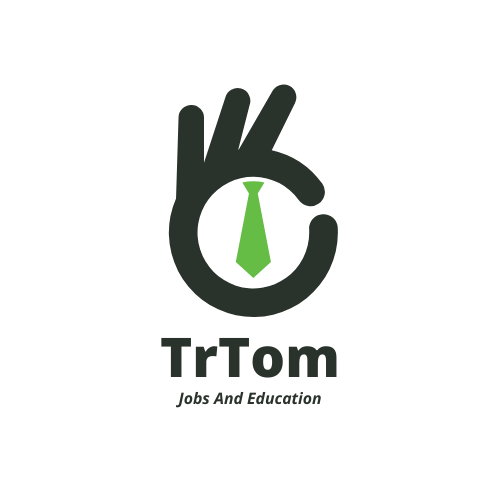Introduction
Overview of Fully Funded Scholarships in Canada
Fully funded scholarships in Canada present a golden opportunity for international students seeking to alleviate financial burdens while studying at prestigious institutions. These scholarships cover tuition fees, living expenses, and sometimes even travel costs. Notable examples include the Lester B Pearson Scholarship at the University of Toronto and various government-funded programs. For many, these options can transform their educational dreams into reality.
Benefits of Studying in Canada
Studying in Canada offers numerous advantages:
- Quality Education: Canadian universities consistently rank among the top globally, offering high academic standards.
- Cultural Diversity: With students from various backgrounds, it’s a melting pot of cultures, promoting growth and understanding.
- Work Opportunities: International students can work part-time while studying, helping them to manage living costs effectively.
Overall, Canada stands out as a top choice for students seeking quality education and enriching experiences.
Researching Available Scholarships
Government-Funded Scholarship Programs

Exploring government-funded scholarship programs is a key step in securing financial support for your studies in Canada. Programs such as the Vanier Canada Graduate Scholarships and the Canada Graduate Scholarships focus on graduate students. These scholarships often have specific eligibility criteria but can cover substantial tuition and living costs.
- Vanier Canada Graduate Scholarships: For doctoral students demonstrating outstanding academic performance.
- Trudeau Foundation Scholarships: Supports students in social sciences and humanities with leadership potential.
University-Specific Scholarships
Beyond government options, individual Canadian universities offer a wealth of scholarships tailored to their students. For example, the University of Toronto features the esteemed Lester B. Pearson International Scholarship, designed for exceptional international students. When researching these scholarships, check:
- University of British Columbia: Offers various awards for international students.
- McGill University: Has a range of scholarships based on academic merit and need.
Each institution’s website often lists detailed opportunities, making it essential to explore thoroughly and apply to as many as feasible.
Meeting Eligibility Criteria
Academic Requirements
Understanding the academic requirements is crucial in your journey toward securing a fully funded scholarship in Canada. Each scholarship has its own set of academic criteria, but generally, students need to demonstrate:
- Excellent Grades: A strong academic record is often a prerequisite.
- Relevant Coursework: Completing courses that align with the intended field of study.
For instance, a master’s scholarship in engineering may require a bachelor’s degree in a related discipline.
Language Proficiency Tests
Language proficiency is another vital aspect to consider. Most scholarships necessitate proof of language skills, especially for international students. Commonly accepted tests include:
- IELTS: Often requiring a score around 6.5 or higher.
- TOEFL: A competitive score is generally expected, depending on the program.
Preparing in advance and achieving the required scores can significantly enhance your chances of scholarship success.
Preparing Application Materials
Letter of Intent
The letter of intent is a vital document in your scholarship application, allowing you to express your motivations and aspirations clearly. Here’s how to craft an impactful letter:
- Introduce Yourself: Start with a brief introduction, including your academic background.
- State Your Goals: Clearly outline your academic and career objectives.
- Explain Your Fit: Discuss how the scholarship will help you achieve your goals.
A strong, personalized letter can significantly bolster your application.
Letters of Recommendation
Letters of recommendation are another critical element, providing external validation of your academic and personal abilities. When selecting referees:
- Choose Wisely: Opt for professors or professionals familiar with your work.
- Prepare Them: Share your achievements and the scholarship’s focus to give context.
- Follow Up: Check in with them before the deadline to ensure timely submission.
These letters help scholarship committees understand your suitability beyond just grades, enhancing your overall representation as an applicant.
Submitting Your Application
Deadline Considerations
Once you’ve prepared your application materials, understanding the deadlines is crucial for successful submission. Each scholarship has its own timeline, so
- Create a Timeline: Map out all important dates, including the application and supporting document deadlines.
- Start Early: Submit materials ahead of time to avoid last-minute issues.
Staying organized can significantly reduce stress as deadlines approach.
Application Process Overview
Navigating the application process effectively can make all the difference. Here’s a quick breakdown:
- Review Requirements: Confirm all materials are in order—academic transcripts, letters of recommendation, and proof of language proficiency.
- Complete Online Forms: Fill out the necessary online scholarship application forms accurately.
- Submit and Confirm: After submission, verify that your application has been received properly.
By following these steps diligently, you can enhance your chances of securing a fully funded scholarship in Canada.
Post-Submission Steps
Follow-Up Communication
After submitting your scholarship application, it’s crucial to maintain communication. A gentle follow-up can demonstrate your enthusiasm for the opportunity. Here are some tips:
- Send a Thank-You Email: Express gratitude to the scholarship committee for considering your application.
- Ask Questions: If you have any queries about the timeline or process, don’t hesitate to ask.
This proactive approach can positively influence their perception of you.
Interview Preparation
In some cases, you may be required to attend an interview as part of the scholarship selection process. To ensure you’re well-prepared:
- Research Common Questions: Familiarize yourself with typical questions like your motivations for studying or your future plans.
- Practice Responses: Rehearse answers with a friend or mentor to gain confidence.
Doing so could significantly enhance your chances of securing the scholarship and making a lasting impression.
You can also read on: Unveiling the Transformation: The Story Behind Canada’s Town Project Renewal
Finalizing Scholarship Acceptance
Understanding Award Terms
Once you’ve received a scholarship offer, it’s vital to thoroughly understand the award terms. This can include important details such as:
- Renewal Criteria: Know what grades and participation requirements are necessary to maintain the scholarship.
- Funding Breakdown: Understand how much of your tuition and living expenses the scholarship will cover.
Clarifying these points ensures you maximize your scholarship benefits and avoid surprises later.
Financial Considerations
When finalizing your acceptance, consider the financial implications:
- Tuition and Fees: Confirm what costs are covered by the scholarship and budget for any remaining expenses.
- Cost of Living: Analyze your living expenses to determine if additional funding is needed.
- Work Opportunities: If permitted, explore part-time work options to supplement your income while studying.
Taking these factors into account will help you manage your finances effectively during your studies in Canada.
You can also read on: Top 10 Part-time Jobs for Students in Canada
Preparing for Study Abroad
Visa Application Process
Once you’ve secured your scholarship, the next step is to tackle the visa application process. Key points to remember include:
- Online Application: Submit your study permit application online, ensuring all required documents are ready, such as your letter of acceptance and proof of financial support.
- Biometrics: Depending on your nationality, you may need to provide fingerprints and a photo.
Taking these steps will ensure a smoother application journey.
Housing and Arrival Arrangements
Planning your housing and arrival arrangements is crucial for a seamless transition. Consider the following:
- Housing Options: Research university dormitories, shared apartments, or homestays to find the best fit for your lifestyle and budget.
- Travel Plans: Book your flight well in advance and ensure you have all necessary travel documents, such as your study permit and passport, readily accessible on your journey.
Getting these details sorted out early can significantly reduce your stress as you prepare for your exciting adventure abroad!
You can also read on: Everything You Need to Know About Work Permits and Visas for Canada

